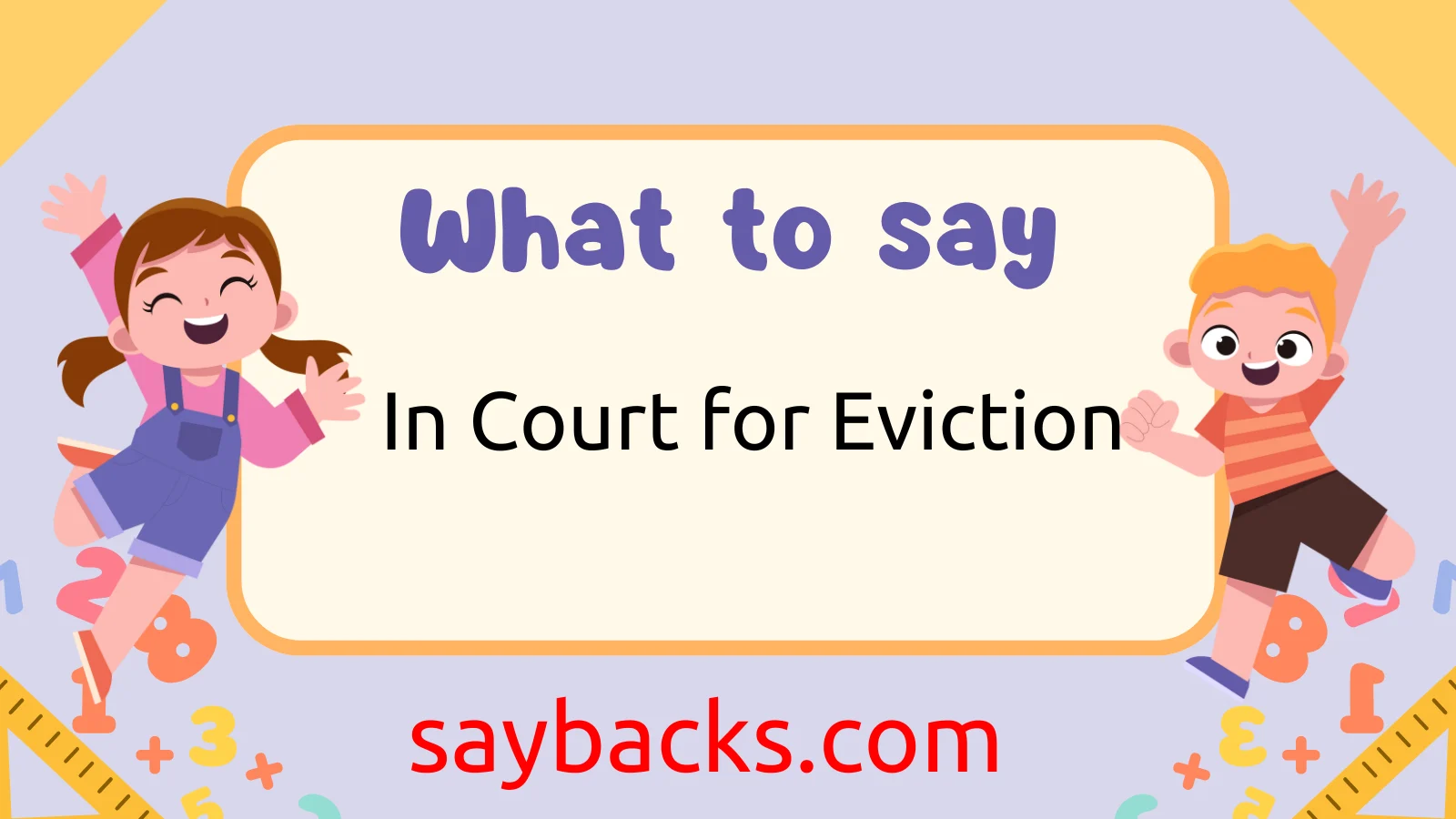Going to court for an eviction can feel scary and confusing. You may be worried about saying the wrong thing or not knowing how to explain your side. That’s why knowing what to say in court for eviction is so important.
Whether you’re behind on rent, dealing with a landlord issue, or trying to stay in your home, your words matter. This guide will show you how to talk clearly, honestly, and respectfully in front of a judge. We’ll give you real examples of what to say and what not to say, so you can feel more confident on your court day.
1. Stay Calm and Show Respect in Court
✅ What to Say:
- “Good morning, Your Honor.”
- “Thank you for giving me a chance to speak.”
❌ What Not to Say:
- “This is unfair!” (in a loud or angry voice)
- Talking over the judge or landlord
Why it matters: Judges are more likely to listen if you stay calm and polite, even if you’re upset. Show that you’re respectful and serious.
2. Explain Why You’re Being Evicted (Truthfully)
✅ What to Say:
- “I got behind on rent after losing my job, but I’m working now and can catch up.”
- “I didn’t know the rent went up. I never got a written notice.”
❌ What Not to Say:
- “That’s not true!” (without facts)
- Lying or guessing details
Why it matters: Telling your story honestly helps the judge understand your situation. Even if you broke a rule, being honest can help your case.
3. Bring Proof and Use It the Right Way
✅ What to Say:
- “Here’s a copy of my rent payments for the past 3 months.”
- “I have a photo that shows the repair was never made.”
❌ What Not to Say:
- “You’re lying!” (without showing proof)
- “I forgot to bring it.” (if the judge asked for documents)
Why it matters: Documents, photos, and text messages can help your case. Show them politely and clearly when it’s your turn.
4. Ask for More Time If You Need It
✅ What to Say:
- “Can I ask the court for more time to move out?”
- “I need 30 days to find a new place and move safely.”
❌ What Not to Say:
- “I’m not leaving no matter what!”
- Demanding extra time without explaining why
Why it matters: Judges may grant more time if you ask kindly and give a good reason. You won’t get it if you don’t ask.
5. Talk About Any Fixes or Problems With the Home
✅ What to Say:
- “The heater stopped working, and I asked for repairs three times.”
- “There was mold, and I reported it, but it was never cleaned.”
❌ What Not to Say:
- “It’s all the landlord’s fault!” (without explaining clearly)
- “I didn’t pay rent because I was mad.”
Why it matters: If the home had serious issues, the court may consider it. You must explain it with details and proof.
6. Know When to Stay Quiet and Listen
✅ What to Do:
- Wait your turn to talk
- Let the judge ask questions before speaking
❌ What Not to Do:
- Interrupt the landlord
- Argue or shout in court
Why it matters: Judges notice how you act in court. Being respectful can help your case, even if the facts are hard.
Final Thoughts: What to Say in Court for Eviction
Facing eviction is tough, but knowing what to say in court for eviction can make a big difference. Be honest, stay calm, bring proof, and speak with respect. Even if the outcome isn’t perfect, the court may offer extra time or solutions if you handle things the right way. Your words can help protect your rights and your future. 🏠

